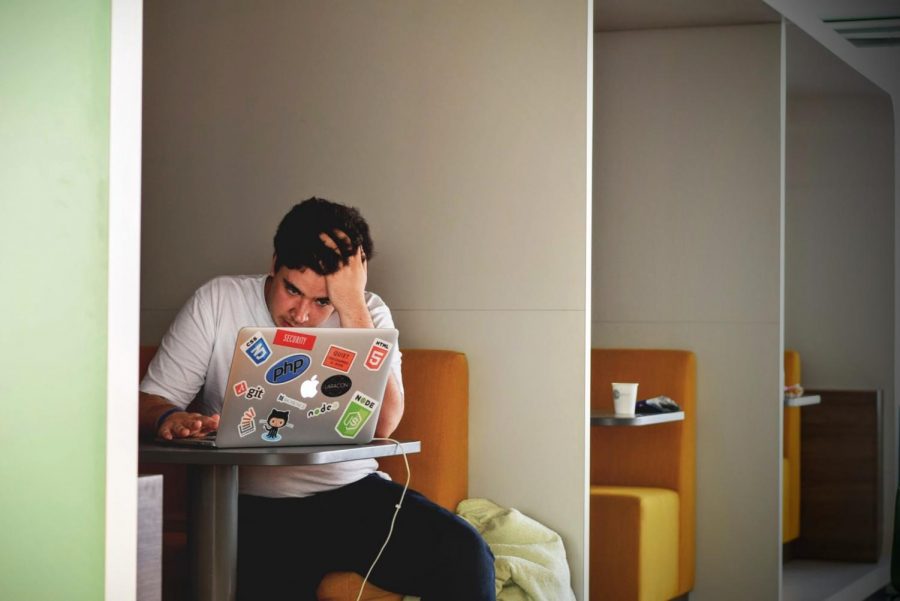Online learning impacts students’ mental health.
Courtesy Unsplash
Whether it is from a desk, your bed, kitchen table, or your front porch, online learning can be draining. Looking at a screen for hours a day and having minimal social interaction can be detrimental to the mental health of students.
This year, many students have been struggling with their school work due to their home life, social life, and technology. While the world worries about health and the economy, students say they are struggling with progressing to the next level of their education.
Struggles at home
Not all teenagers have the perfect life to come home to after a hard day at school, and the pandemic has only made these situations worse. Many parents have lost their jobs, or have become sick making them incapable of paying the bills.
For several students, school is a safe place to get away from personal problems, and remote learning has made that nearly impossible, according to Ava Blalark, Glenbard East social worker.
“We love our family but we aren’t used to being with them 24/7,” she said. “It’s hard not to be able to take a break from one another. For some young people who may have issues at home, there are so many different things that could be going on and you don’t have a break from that. Those types of things can lead to more depression and more anxiety.”
Making friends
Due to the online learning environment, it has become almost impossible to socialize. In particular, many freshmen and new students this year have become worried they will not be able to meet new people properly. Students have not gotten to know each other, and while some teachers use breakout rooms to make groups, some students say they have not been very effective.
Freshman Maria Gronwold said “It’s been hard especially over screens, to really get to know people. And while the breakout rooms work, it’s still difficult. I’m really excited to transition into hybrid for school.”
To help this, a few students have found other ways to communicate using social media or email.
“For the most part, I’ve stayed in contact with people over Discord and Instagram. I emailed one person in my health class and asked if he wanted to be friends. I got his Discord and we are kind of friends now, but not super close. I was worried about seeming weird, but it worked out,” said Carmen Chavez, a freshman.
Besides making new friendships, it is difficult to continue remote ones.
“It’s hard to maintain friendships online. Especially if you are bad at texting, then they could end up feeling annoying. It’s hard maintaining friends when you don’t see them regularly, Chavez said.
Being social is a human necessity and while some people are struggling with it more than others, it has impacted all of us.
Technology
Most students are lucky enough to have resources at this age that allows them to do remote learning properly, but these don’t always work. Wifi connections could fail, papers do not load, or iPads will not charge fully.
Some students are having a very hard time learning, and some are having a difficult time engaging in their classes.
“There has been anxiety over remote learning. We are seeing that kids don’t want to turn on their screens, no one wants to be the only one showing their face. Remote learning takes a lot of self-motivation, and if you don’t have that it makes it a lot more difficult,” Blalark said.
Advice
The pandemic has left everyone with many challenges. To help their mental health, students should focus on the positives in their life, stay connected with friends and family, and do fun activities.
“Focus on any positives and things that you are grateful for. When we shift our focus from the negative to the positive, that has a beneficial effect on our mood,” Blarlark said. “Stay connected with family and friends through social media, text, and facetime. Do things you enjoy like reading, writing, watching movies, and playing video games.”

Maggie is a senior, this is her fourth year with the Echo, and is returning as Editor-in-Chief! In addition to the Echo, Maggie plays violin, is orchestra...








